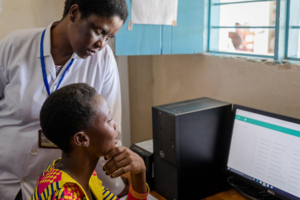Data collected routinely by governments and by program implementers can be leveraged to inform and evaluate social and behavior change (SBC) programs. What distinguishes routine data is that they are collected regularly within health information systems or within program monitoring systems. This brief is intended for global, regional, and country-level SBC program implementers, evaluators, and monitoring and evaluation teams who want to document whether their program is having an impact using routinely collected data. The brief provides an overview of the considerations of using routinely collected data for design and analysis, illustrates steps in undertaking an evaluation, and demonstrates how results can be applied to SBC programming.
Learn More
Programmatic research brief: “Considerations and Guidance for Using Routine and Program Monitoring Data for Social and Behavior Change Evaluation”


